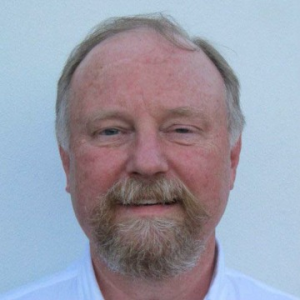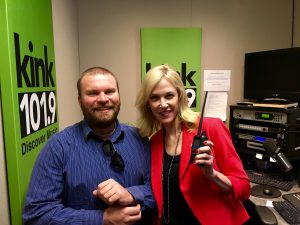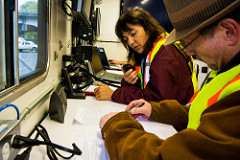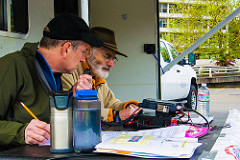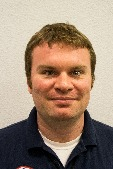 In ARES we use many digital forms of communication. Primarily we use Winlink with packet TNCs, of course, to exchange email over radio. Soon (with this month’s training at our regular meeting) we will start to introduce sound card modes to our operations, using a digital radio interface and programs like MMSSTV and Fldigi to send text and images that way.
In ARES we use many digital forms of communication. Primarily we use Winlink with packet TNCs, of course, to exchange email over radio. Soon (with this month’s training at our regular meeting) we will start to introduce sound card modes to our operations, using a digital radio interface and programs like MMSSTV and Fldigi to send text and images that way.
But we get a lot of questions about “digital voice” these days. Which technology is MCARES going to pick from D-STAR, DMR, Fusion, etc. and recommend to the membership? The short answer: none at this time.
The MCARES leadership team has made the decision not to incorporate any of the digital voice modes into ARES operations at this time, nor formally recommend any to our membership.
The current Multnomah ARES standard for voice is analog and will remain so for the foreseeable future. We came to this decision after reviewing the results of the membership survey, speaking with local repeater operators, and discussions internally with some of our technically minded members. Some of the key factors in the decision included:
- The most important characteristic of ARES radio operations is compatibility; any certified ham radio should work in an incident.
- Many of the advanced features of digital modes are repeater-dependent.
- No huge benefit to digital voice over analog voice on simplex (although digital data modes do hold future promise).
- No critical mass: The few MCARES members with digital radios are using pretty much all of the available technologies.
- A number of strong opinions: Some members feel strongly about “their” choice, and we’ve got at least one of those for each digital technology. Making a decision is going to be a little bloody.
In summary, the leadership team doesn’t feel the new digital voice modes provide enough value to start integrating them into our regular operations yet or encouraging their adoption by the membership. But we encourage all members to explore and experiment with these digital voice modes because the day we’ll want to start leveraging them is not too far ahead of us.
We do note that Yaesu Fusion has by far the largest installed base of repeaters in the area. D-Star has the largest base of radios, however. And while the DMR contingent is growing, it’s got the smallest level of adoption of all the ham radio digital modes at the moment.
Thanks to all those who provided feedback during this decision process, and for your understanding as we work through technical and operational issues such as these.
